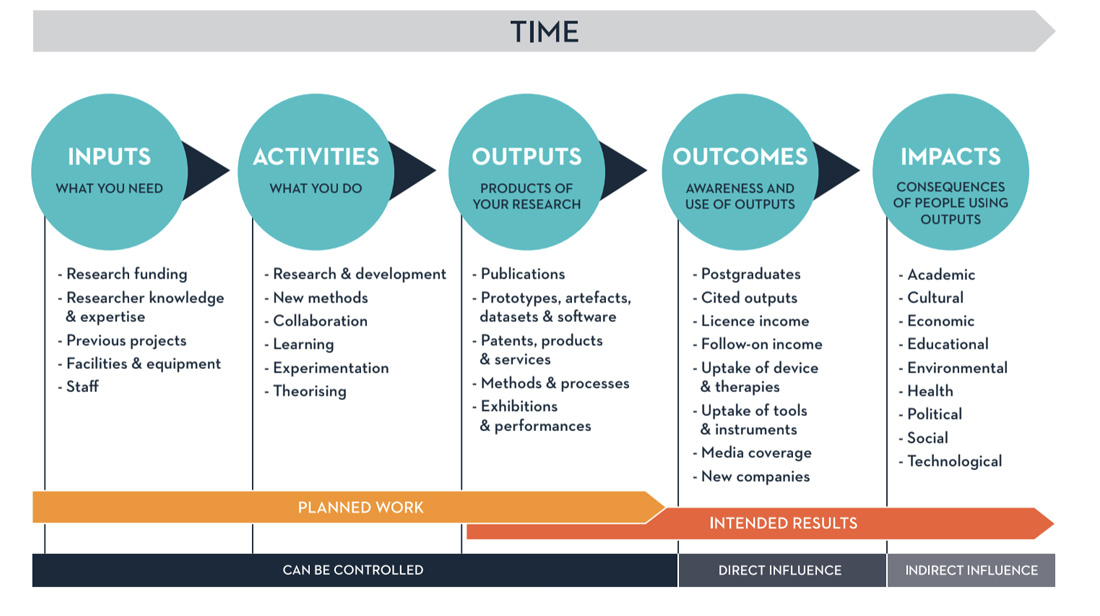The impact journey describes how research can lead to impacts on society (and academia). It traces research over time, distinguishing between different five stages on the pathway to impact:
- Inputs: What researchers need.
- Activities: What researchers do.
- Outputs: The products of research.
- Outcomes: People becoming aware of, and using, these products. They generally occur in the short- to medium-term.
- Impacts: Changes in society that result from outputs and outcomes. Typically, impacts occur in the longer-term.
The diagram below demonstrates this pathway, with examples under each of the five stages. It is based on the W.K. Kellogg Foundation Logic Model.

Of course, this diagram doesn’t capture the myriad complexities of real-world impact journeys. In reality, the process is rarely linear, and many factors beyond your research will play a role in the impact. Moreover, impacts can often take many years to arise. But the model can help you think about the steps involved in converting your research into societal change.
The diagram also highlights how, as a researcher, you have less control as you travel further along the impact pathway. You can directly control your research activities and outputs, but can only influence the extent to which those outputs are used by others (you can’t determine exactly how much media coverage your work will receive, for example). And you have less control still over what might change in society because of people using your research.
But this is no reason to be passive: you should do what you can to steer your research towards positive impacts.
Worked examples
Below are three concrete examples of impact journeys taken by researchers at UCD:


